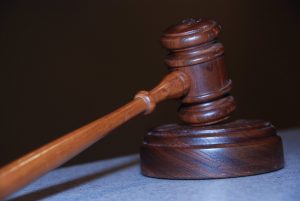 In Commonwealth v. Hart, the Appeals Court ruled that the judge did not abuse her discretion in denying the defendant’s motion for a mistrial due to juror bias.
In Commonwealth v. Hart, the Appeals Court ruled that the judge did not abuse her discretion in denying the defendant’s motion for a mistrial due to juror bias.
The background was as follows. The defendant is African-American. Prior to the commencement of proceedings on the third day of the defendant’s trial, “the court officer went [to the jury room] to say hello to the jurors, none of whom was African-American.” In response to the court officer’s greeting, “juror no. ten said, ‘Good morning, it’s a good day for a hanging.’ Although the court officer stated that most jurors said, ‘I can’t believe you said that,’ juror no. six claimed that he thought some jurors laughed. The court officer informed the judge, who conferred with counsel. The judge and defense counsel agreed that, given the sorry history of lynchings of African-Americans in the United States, this comment by a juror who was not African-American had overtones of racial bias. The prosecutor … agreed that a voir dire of all the jurors was proper. The judge then interviewed juror no. ten and dismissed him…. [T]he judge apologized to the defendant and said, apparently reflecting her understanding of the racial overtones of [juror no. ten’s] comment, ‘I really do believe that most jurors don’t believe, or have the beliefs that this juror expressed.’ She then conducted a voir dire of each [remaining] juror, asking them, in substance, whether they heard juror no. ten’s comment[] … and whether they were satisfied that they could fairly and impartially decide the case.” The judge also asked some of them “how the other jurors reacted.” “It was during this voir dire that juror no. six stated that he thought some of the other jurors laughed at juror no. ten’s comment. The judge concluded that each juror could continue to serve. While defense counsel did not request that the judge conduct further or more detailed inquiry, and thanked the judge for the process she had undertaken, he nonetheless moved for a mistrial. The motion was denied and the defendant appealed.
In its decision, the Appeals Court stated, “Our decision is controlled by … Commonwealthv. Tavares, 385 Mass. 140, cert. denied, 457 U.S. 1137 (1982). There, deliberating jurors were exposed to a racially charged comment by one of their number, and the judge learned of it before the verdict was returned. The Supreme Judicial Court held that ‘the judge interrogat[ing] the jurors and conclud[ing] that they could fairly and impartially render a verdict’ [] — as the judge did here — sufficed to address the risk of the other jurors’ exposure to what the court described as ‘extraneous prejudicial information.’…. Thus, under Tavares, no further” inquiry — such as “questions to each juror about whether he or she laughed at juror no. ten’s comment, and why, nor application of any heightened burden, presumption, or per se rule, to ensure impartiality” — was required here. The Court added, however, that “[w]hether Tavaresprovides adequate guidance to trial judges seeking to assess the potential effects of racial prejudice expressed in the jury room … is something that requires fresh, principled, and rigorous reexamination. Indeed, the Supreme Judicial Court has recently introduced [in Commonwealthv. McCowen, 458 Mass. 461, 497 (2010)] a more rigorous procedure [that] judges should follow when they are informed, after the verdict has been returned, of racially charged statements made by jurors.” “[I]n light of the length of time that has passed since Tavares and our keen awareness of the potential for racial bias to infect jury deliberations, we believe it would be appropriate for the Supreme Judicial Court to consider furnishing additional guidance to trial judges seeking to assess the potential for juror taint resulting from discriminatory statements made during deliberations.”
If you or a loved one is charged with a criminal offense and planning to go to trial, it is critically important that you have a jury that is fair and impartial. To ensure that you obtain such a jury, you will need a skilled and experienced attorney who is well versed in the law and who has substantial trial experience. Attorney Daniel Cappetta has successfully taken many cases to trial and works zealously to make sure that all of his clients have a jury that will consider the case without bias or prejudice. Call Attorney Cappetta today for a free consultation.
 Massachusetts Criminal Lawyer Blog
Massachusetts Criminal Lawyer Blog

